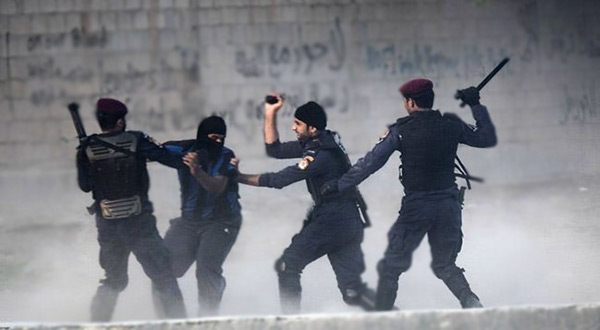The rights group, ADHRB, said it is gravely concerned that the deep flaws in the Ombudsman's mandate, structure, and procedures continue to compromise its ability to monitor human rights abuses and hold violators accountable.
The Ombudsman for Bahrain's MOI released on 12 September 2017 its fourth annual report for the period of 1 May 2016 to 30 April 2017.
According to the rights group, the Ombudsman's Office re-emphasized its autonomy from the government and greater security establishment, presenting statistics concerning the complaints of MOI malfeasance that it received during the period under review, as it did in its previous report.
The 2016/2017 annual report indicates that the Ombudsman received 1,156 complaints over the last year, representing 35 percent of the total number of complaints and assistance requests submitted to the institution since its establishment in 2013.
Based on the report, 66% of the 1,156 complaints were submitted by men, 30% by women, and 4% by "local and international organizations." 19% of the individual complainants submitted at least two complaints, suggesting need for repeated redress and/or follow-up.
ADHRB asserts that the chronological and location-based data of the Ombudsman's report roughly conform to the groups reporting during the period under review, as the report failed to breakdown the complaints by type of abuse or to analyze the figures it did provide, including 1) Jaw Prison, the kingdom's primary long-stay male detention center; 2) the General Directorate of Investigation and Criminal Evidence [also known as the Criminal Investigations Directorate, or CID]; and 3) the standard police forces of the four governorates, Capital, Muharraq, Southern, and Northern.
Although the Ombudsman indicated the months in which it received the highest number of complaints [March 2017 - June 2016], it declined to acknowledge or provide documentation to address the evidence raised by the High Commissioner.
Instead, it simply indicates that it referred 83 - just seven percent - of the 1,156 complaints to a disciplinary or prosecutorial authority, ADHRB said.
As a result, only the 16 complaints referred to the Public Prosecution and the Special Investigation Unit [SIU] should be understood as concerning serious offenses or constituting a formal attempt to secure accountability for MOI personnel. Those cases represent just one percent of the total complaints received by the Ombudsman during the year.
Additionally troubling is the report's omission of credible allegations of government responsibility for a death in custody during the period under review. Of the eight deaths that the Ombudsman acknowledged for the year, it dismissed four as the result of natural causes and reported that another four remained under investigation, though not for torture or ill-treatment.
The report contains no dedicated section providing clear recommendations to the MOI or to other government bodies, but it seems to make two related recommendations to prison authorities concerning: 1) the availability of emergency medical care; and 2) precautions to take against inmate drug smuggling and abuse.
The foreword issued by the head of the Ombudsman's Office, Nawaf Mohamed Al Moawdah, also appeared to include an additional recommendation concerning the implementation of a separate recommendation issued by the Prisoner and Detainee Rights Commission [PDRC] - an equally flawed oversight body that is chaired by the Ombudsman, the rights group added.
In the latter case, however, the Ombudsmen acknowledges that "the pathway of every detainees from the time of arrest" is not in fact "fully covered by CCTV" cameras, as recommended by the PDRC as well as the international community.
ADHRB indicated that this admission directly contradicts the government's assertion in its national report to the UN Committee against Torture [CAT] in June 2016, which claimed the MOI instituted this measure and "installed the most technologically up-to-date cameras."
Ultimately, the Ombudsman's 2016/2017 annual report simultaneously confirms both the continued need for strong oversight and accountability mechanisms in Bahrain, and its consistent failure to properly fulfil that mandate itself.
Only one percent of the complaints it received were referred to bodies charged with holding security personnel accountable for serious human rights violations like torture, and even these bodies are extremely flawed, prone to bias, and implicated in due process abuses, the rights group said.
Hence, the Ombudsman's inability to independently and transparently address the increasing rate of severe abuses in Bahrain puts complainants at further risk of reprisal and undermines the potential for real reform and reconciliation in Bahrain, ADHRB stressed.
At worst, the Ombudsman - which remains deeply supported by the United Kingdom, as evidenced by Amnesty International and the new annual report itself - continues to obscure the full breadth and severity of crimes committed by the kingdom's authorities, even when it inadvertently disproves their misleading claims in other fora.
In conclusion, ADHRB called on the Bahraini regime to restructure the Ombudsman in such a way as to truly separate it from executive influence and empower it to hold perpetrators responsible for their abuses.
/106

